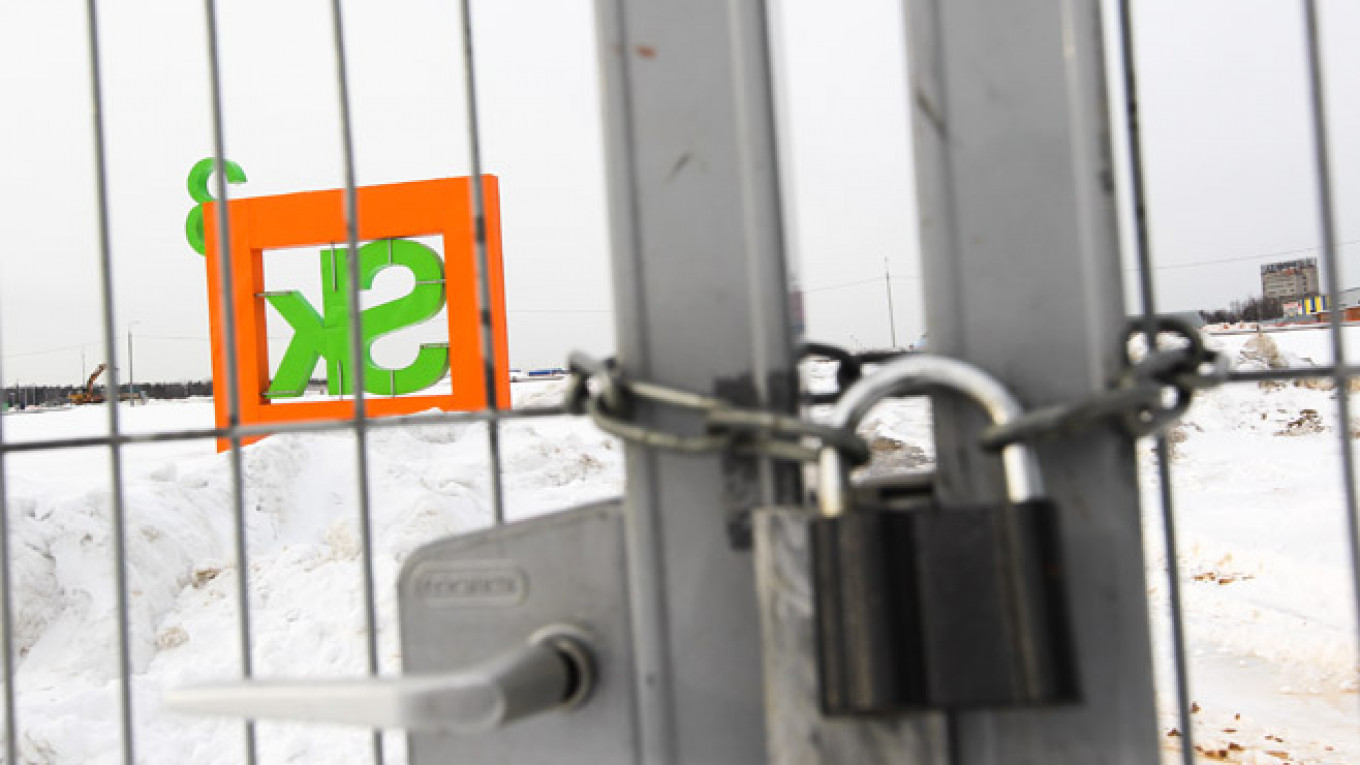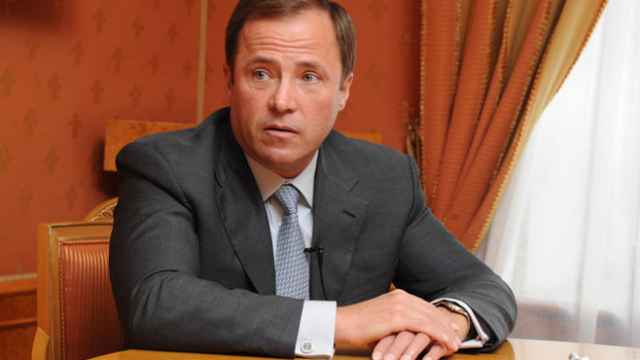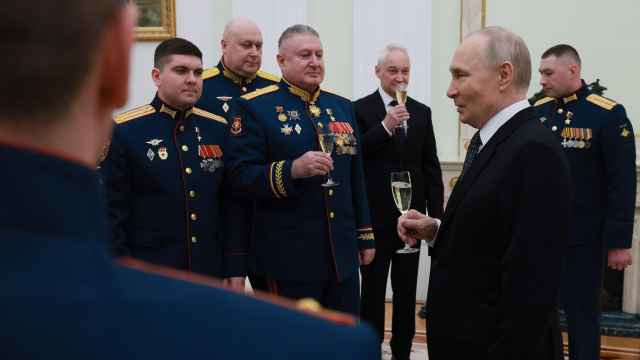A prominent Russian space expert has been dismissed from his position with a state-run research center in a move that he says is politically motivated, after criticizing a massive space industry reform project in an interview with the BBC.
Vadim Lukashevich worked at the Skolkovo Innovation Center, a high-tech business park outside Moscow intended as Russia's answer to Silicon Valley that has partnerships with Western research universities such as MIT.
"As I understand it, they [fired me] for a series of interviews in which I criticize the recent decision to liquidate the Federal Space Agency and create a new state corporation called Roscosmos," Lukashevich told The Moscow Times on Friday.
President Vladimir Putin last month green-lighted the creation of the Roscosmos corporation, which aims to revitalize Russia's space sector by welding the space agency to United Rocket and Space Corporation (URSC), a colossal industry-spanning conglomerate created by government decree last year.
URSC was tasked with reforming the space industry to meet the needs of the Federal Space Agency. Now it will absorb the agency's responsibilities and rule over every aspect of Russia's space activities.
Politically Motivated?
Lukashevich, a prominent voice in the Russian space scene, told the BBC the reform would remove any industry accountability and would foster corruption — all while failing to provide Russia with a long-term direction in space.
On Wednesday, a day after the interview was published, he said someone at Skolkovo's Space Cluster called him to say he had been fired. The caller "apologized several times, saying the decision was imposed on them from above — by a phone call from URSC in the middle of the night," Lukashevich said.
Skolkovo did not directly respond to Lukashevich's claim that URSC ordered his dismissal. The center's press secretary, Alexandra Barshchevskaya, said Lukashevich's departure had been long-planned, and he had received official notification in October.
The head of Skolkovo's Space Cluster, Alexei Belyakov, said the dismissal was part of a regular rotation of experts affiliated with the center, and that Lukashevich's area of expertise did not chime with the cluster's current focus on commercial space projects. He declined to specify how many experts were let go in this process.
Lukashevich insisted that he never received any notice that he was let go last year, adding that it would have been the first important document from Skolkovo not sent by email.
Paradise Lost
The abrupt removal of Lukashevich suggests that the current political climate may have compromised the Skolkovo Innovation Center's status as an independent free-thought zone, a Russian space expert who asked not to be identified told the Moscow Times.
Patriotism and Russia's military-industrial capacity have become state priorities as Moscow confronts the West over Ukraine.
According to the expert: "[Skolkovo] is completely turning into part of the Kremlin power structure, a propaganda machine destined to create an impression that the Kremlin cares a lot about the development of [science and technology] in Russia, and that whatever the Kremlin does in this field is right."
Lukashevich, perhaps predictably, agreed: "Since as far as I know this only happened after URSC reacted negatively [to the BBC interview], the independence of Skolkovo — the pluralism and freedom of experts at the center — has now been shown to be a myth," he said.
Skolkovo's Belyakov did not directly respond to these allegations.
Skolkovo is involved in the URSC and Roscosmos reforms, and Belyakov defended them as the best course for the struggling space industry.
"We understand, of course, that such a model is less market-oriented, insomuch as it will have a negative impact on the possibility of competition between manufacturers," Belyakov said.
"But the unspoken advantage of this model is greater efficiency and flexibility in decision making. It is now necessary to rapidly reform the sector and improve its commercial effectiveness."
Contact the author at [email protected]
A Message from The Moscow Times:
Dear readers,
We are facing unprecedented challenges. Russia's Prosecutor General's Office has designated The Moscow Times as an "undesirable" organization, criminalizing our work and putting our staff at risk of prosecution. This follows our earlier unjust labeling as a "foreign agent."
These actions are direct attempts to silence independent journalism in Russia. The authorities claim our work "discredits the decisions of the Russian leadership." We see things differently: we strive to provide accurate, unbiased reporting on Russia.
We, the journalists of The Moscow Times, refuse to be silenced. But to continue our work, we need your help.
Your support, no matter how small, makes a world of difference. If you can, please support us monthly starting from just $2. It's quick to set up, and every contribution makes a significant impact.
By supporting The Moscow Times, you're defending open, independent journalism in the face of repression. Thank you for standing with us.
Remind me later.






